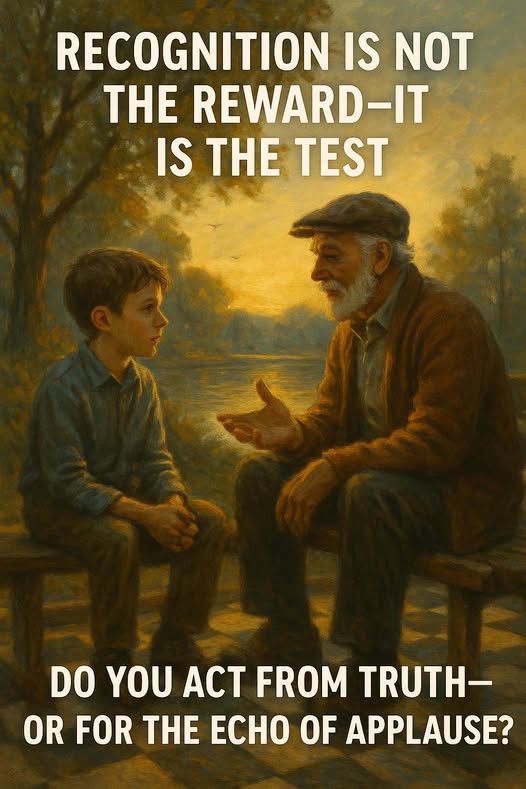
The morning light danced through the trees as Emil and his grandfather sat by the lake. Birds chirped, water shimmered—but Emil’s thoughts were elsewhere.
“Grandfather,” Emil began, his voice hesitant, “why does it feel good when people notice me? When they say I’m smart or talented?”
His grandfather smiled, not with amusement, but with understanding.
“Because being seen reminds us we exist,” he said. “But the danger, Emil, is in forgetting who we are when no one is watching.”
Emil looked puzzled. “Is it wrong to want recognition?”
“It’s not wrong to be recognized,” Grandfather said gently. “But it becomes a test when your worth begins to depend on it. When applause becomes your compass, truth often becomes a casualty.”
He reached into his pocket and pulled out a small pebble. “See this? It shines, not because it seeks light, but because of what it’s made of. Recognition is like sunlight—it can illuminate you, but it can also cast a long shadow if you start chasing it.”
Emil thought for a moment. “So the test… is to do what’s right even if no one sees?”
Grandfather nodded. “Yes. The soul’s purity is tested not when the world claps—but when it is silent. Recognition is a mirror. But don’t let it become your master.”
They sat quietly, the breeze moving gently across the water. Then Grandfather added, “Some build their lives to be seen. Others build quietly—and are seen because of it.”
Emil leaned back, letting the wind tousle his hair. “Then I want to build quietly.”
Grandfather smiled. “And that… is recognition of the soul.”

